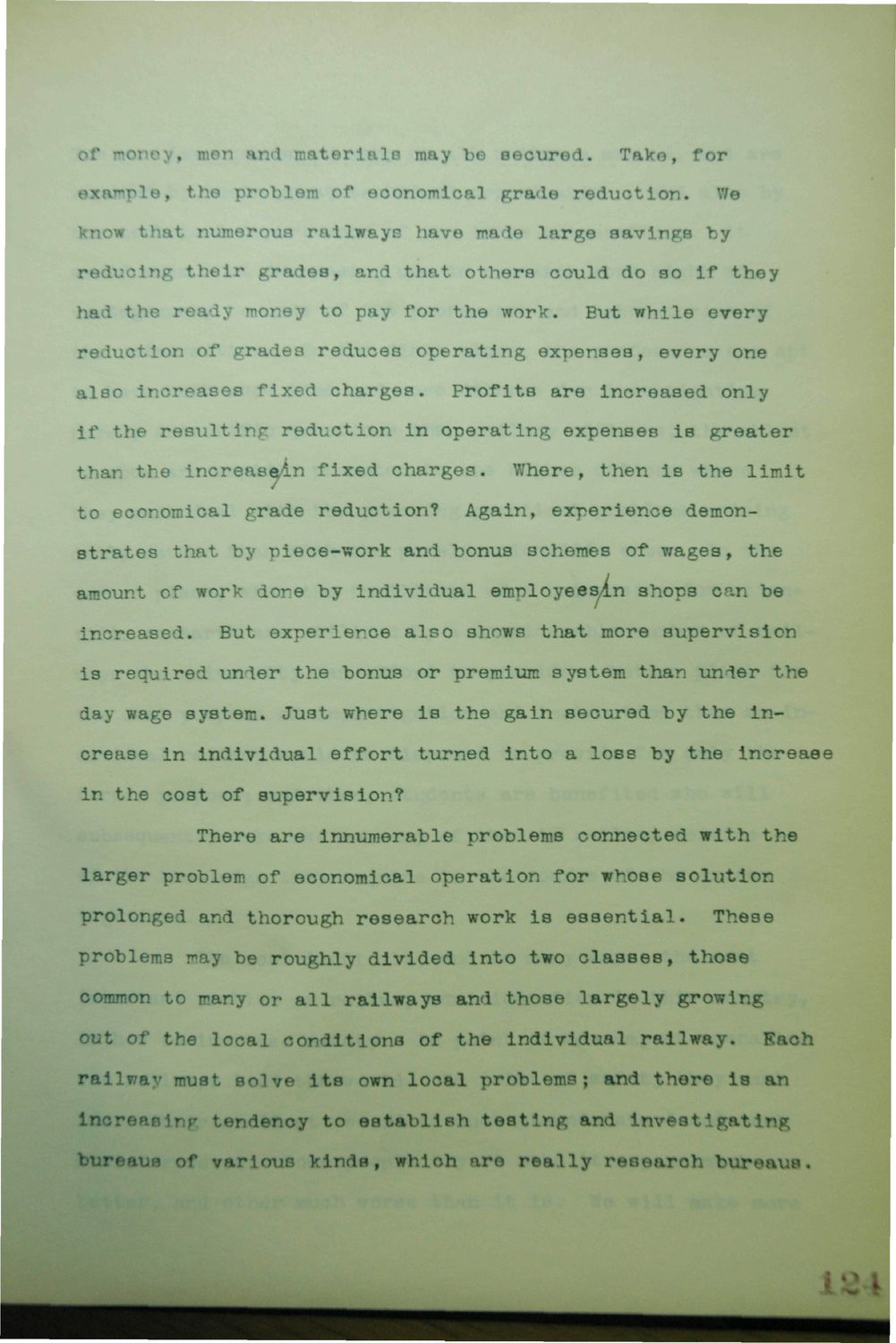Caption: Dedication - Transportation Building Dedication Addresses
This is a reduced-resolution page image for fast online browsing.

EXTRACTED TEXT FROM PAGE:
of money, men and materials may be secured. Take, for We example, the problem of economical grade reduction. know that numerous railways have made large savings by reducing their grades, and that others could do so If they had the ready money to pay for the work. Eut while every reduction of grades reduces operating expenses, every one also increases fixed charges. Profits are increased only if the resulting reduction in operating expenses is greater than the increasaAn fixed charges. Where, then is the limit to economical grade reduction? Again, experience demon- strates that by piece-work and bonus schemes of wages, the amount of work done by individual employeeain shops can be increased. But experience also shows that more supervision is required under the bonus or premium system than under the day wage system. Just where is the gain secured by the increase in individual effort turned into a loss by the increase in the cost of supervision? There are innumerable problems connected with the larger problem of economical operation for whose solution prolonged and thorough research work is essential. These problems may be roughly divided into two classes, those common to many or all railways and those largely growing out of the local conditions of the individual railway. Each railway must solve its own local problems; and there is an increasing tendency to establish testing and investigating bureaus of various kinds, which are really research bureaus.
|